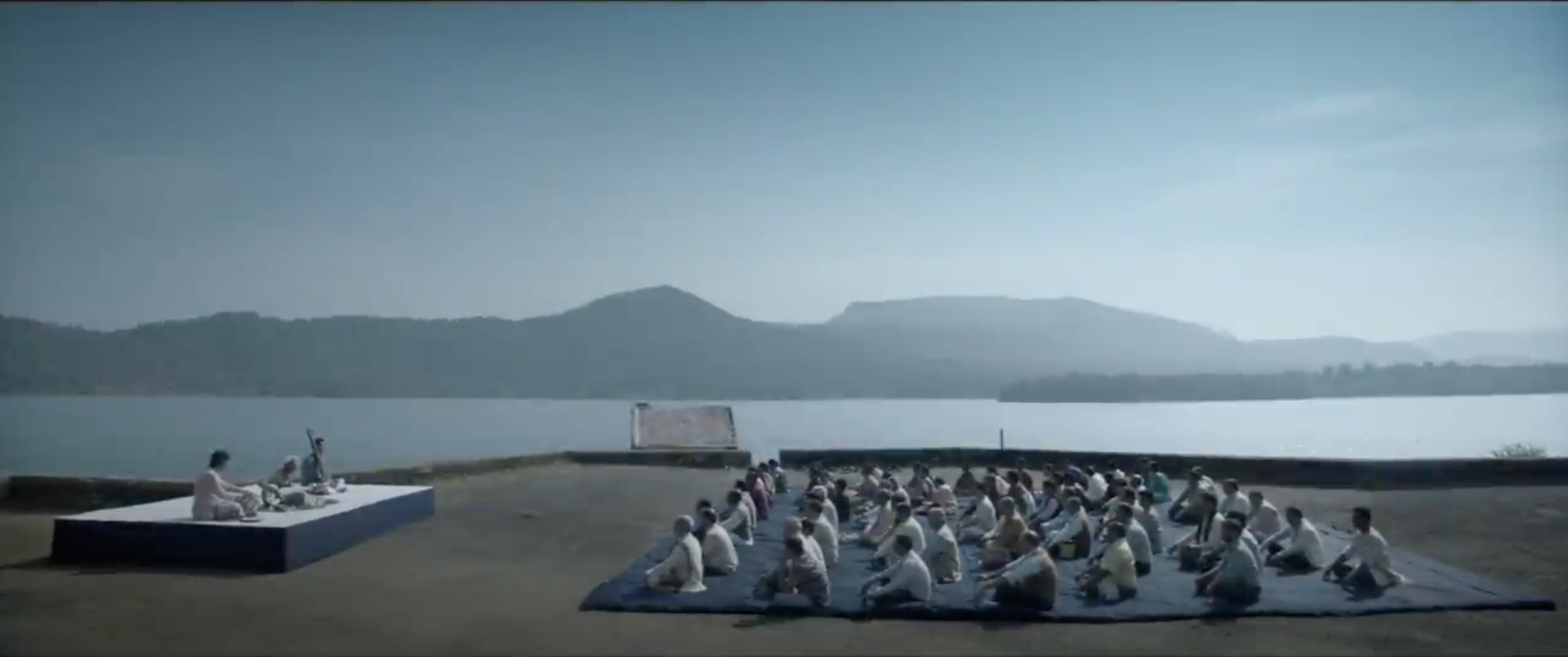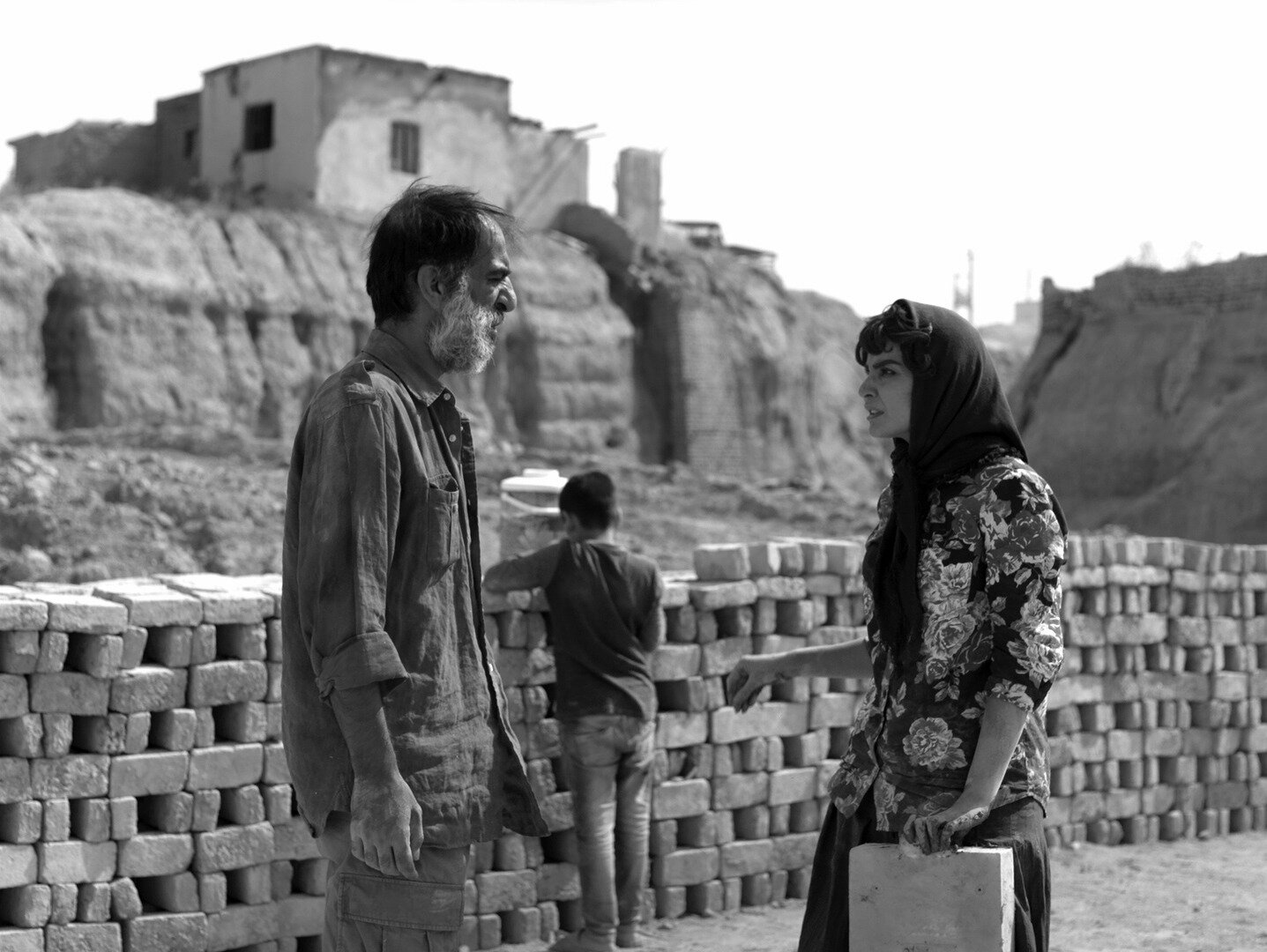The Disciple Directed by Chaitanya Tamhane
The Disciple
Directed by Chaitanya Tamhane
Starrings: Aditya Modak, Arun Dravid, Sumitra Bhave, Deepika Bhide Bhagwat, Kiran Yadnyopavit, Abhishek Kale, Neela Khedkar, Makarand Mukund, Kristy Banerjee, Prasad Vanarse
Country: India
Year 2020
Review author: Roberto Matteucci
Click Here for Italian Version
"If you want to walk this path, learn to be lonely and hungry."
Indian music has an ancient tradition. It has maintained a melodic base unlike the Western one, which has varied over the years in harmonic.
India is a multicultural nation, with rich principles, with a vast philosophical and religious thought. In the millenary civilization, music has been exalted and it becomes an incomparable intellectual power.
This old memory makes music distinctive, spread throughout Indian society:
“Thus Indian life is filled with music at all strata populace. Indian life is filled with music at all strata and levels. Classical music has, then, grown out of this fecund earth and in its turn flowed back into that soil. This is true not only of musical elements and forms but also of instruments.” (1)
India is the country of music. It has fundamental importance, it penetrates the population in every stratum. The music is popular, human, spiritual, cheerful, like Bollywood soundtracks.
“In essence, a raga is a melodic scheme governed by certain traditional rules, but providing a great freedom for improvisation. These rules define and determine the notes of a scale that should be used, their order, prominent and necessary melodic idioms which give a particular 'colour' to the scheme. Based on these more or less strict limitations, the musician is free to create and herein lies his genius.” (2)
The artistic genius is in improvisation. Singers and musicians demonstrate their talent in the creativeness. It is a great opportunity, but it is not a facilitation, it is not an advantage. In reality, written music allows to have clear and determinate rules, but there is a line. Instead, for the Indian singers each performance is unique, exclusive, unrepeatable.
These elements deliver Indian music to a worldwide dimension, the conclusion is an intellectual peculiarity:
“… not only the proud legacy of this subcontinent but of the whole world. For without doubt it is one of the most highly developed and sophisticated musical systems of human society.” (3)
Indian classical music is divided into two segments, essentially geographical. Carnatic music developed in southern, mainly in Tamil Nadu, Kerala, Andhra and Karnataka. While, Hindostani music is widespread in the north.
Indian music is a precious gift, transmitted orally from teachers to devote disciples.
The followers are deferential, respectful of their tutors and the music. They consecrate their lives to both, despite the troubles and the misery of earnings.
The story of a young lover of classical music is narrated by Indian director Chaitanya Tamhane in the film The Disciple, presented at the 77th Venice Film Festival, winner of the Golden Lion for best screenplay. One of the executive producers is Mexican director Alfonso Cuarón. The two filmmakers began a cerebral relationship with deep professional exchanges.
It is the second movie for Chaitanya Tamhane. The first was Court, also at the Venice Film Festival in 2014. It is a lively representation of India seen inside a courtroom.
Mumbai, 2006. Sharad Nerulkar inherited his love of classical music from his father. He dedicates himself to study and practice. His teacher is the elderly and sick Guruji. His muse is the legendary Sind Hubai Maai, he loves her till the exaltation. At her death, she left only a recording of technique and style, listened to by Sharad endlessly.
In art, the study is not enough. If the talent is inadequate, it will not be sufficient to study or spend hours rehearsing. Sharad realizes this and will find another different more realistic solution.
Theses are numerous, ingenious and sensitive.
Indian classical music surrounds life with a soft and refined atmosphere. It is not a simple subject for Westerners, meeting various difficulties. Charm is universal. They are theoretical and practical nuances, as the author defines them:
”There are lots of complexities and nuances in their world. There’s a theoretical side and then a practical side of things.” (4)
It is a film about talent. Who wouldn't want to have it? But just some have it.
It is a film about the connection between master and mentor. The subject is emphasized in the director's interviews, as a metaphoric interpretation. The relationship student and his educator concerns any activity, both artistic and profane. He considers it as a personal case, narrating the devotions also born in cinema between emerging filmmakers and their esteemed, mature gurus.
"It is also a personal story for me," says Chaitanya Tamhane:
“It’s also a personal story for me, in the sense that what’s happening in Indian classical music today is not different from what’s happening in other art forms like cinema. Although cinema is a much younger medium, suddenly in the 21st century, its patronage, its audience, how it’s being consumed, its relevance in pop culture, are issues relevant to Indian classical music as well. For example, many things in Indian classical music are no longer relevant or true, like the guru-shishya parampara. [student-teacher tradition].” (5)
The main protagonist is Sharad Nerulkar. He is 24 years old. His life is marked by the bond with his father. The flashbacks of their private encounters are sentimental moments. The son pays attention to him with total veneration, cancelling all forms of youthful rebellion; taking, fully and freely, the parent's teachings.
He is an emotional character, well described by the screenwriter, Chaitanya Tamhane himself, deserving the Venice Film Festival award.
”But it’s also an emotional film. It is universal despite being set in the world of Indian classical music. It could be about a poet, painter, athlete as well. It also spans three decades, so it has kind of an epic nature.” (6)
His impulsiveness shows him as a human being with many facets.
Surely, he is not so nice; the adoration of music restrains him. If another person does not have an equal fervour, he feels irritable and rejects him.
He is envious of his friends' success, everyone passes him in competitions and does not understand the reason.
However, he is a good and helpful man. He earns little money, and he rarely goes out, but it is not a defect. Indeed, he considers money insignificant, and he spends it to help the suffering teacher.
He is not ungrateful, he is not mean, he is not weak and absolutely no have acedia, in fact, he works intensely until he forgets to call his mother.
He is proud, has high self-esteem, but is faithful. He is humble and fond of Guruji.
He is smart. Very smart. At forty, he erases his mistakes, understanding his modest musical qualities. During a concert he interrupts his performance, he recognizes, at that moment, that he is an average musician, but he does not want to be a mediocre one, so he prefers to give up. It is an act of love for music, only the best can approach it, and if not, it is better to retire.
First, he suffered a lot. The desire for music was unlimited and caused him severe and strong pain, visible in daily gestures.
The character of Sharad is outlined in these scenes.
Classical music. The first sequence is a concert in a hall, shot from a fixed camera. Long-shot, music, the audience keeps timing with their hands. Zoom on the orchestra, an old man sings, he is the master Guruji. The camera moves to a guy, he is Sharad. Match for him to find Sharad, cross-legged at home, singing while playing the sitar.
Devotion. In long-shot, he massages the tired back of the tutor. The camera lingers on the weakness and decrepitude of the elderly. It is the transience of life and affection for the teacher.
Envy. In 2006, he participates in a contest. He is concentrated, he studied incessantly, he bought a suitable tunic. The tension is absolute, but he loses. His upset is explained when the winner is proclaimed, everyone applauds, but Sharad, shocked, does it with delay.
Anger. The famous critic snubs the mythical Maai. Disinterested in the job chance, outraged, he throws the liquid of the glass in his face.
Father. Flashback, both are sitting at a concert. Their hands move simultaneity to follow the music.
Legend. Maai is the source of his music. He worships her. Nevertheless, about her remains just some old tapes. The director uses a particular language to convey her philosophy to the viewer. Sharad is on his motorbike at night, riding in the streets of Mumbai. It appears uncertain about the destination, it is a relaxing tour. Even in loitering, his mind has a monolithic function: thinking about music. Sharad drives without aim. Maai's voice-over, with her discourses on the purpose of the music and its inconceivable beauty, is the soundtrack.
Sexuality. Sharad's life beyond music is minimal. He has no time for anything else. He does not speak to his mother, he is distant from his family. He likes a girl friend, awkwardly touches her hand, but is shamefully rejected. Therefore, he withdraws into himself, unleashing his sexual desires exclusively in enduring masturbation sessions in front of the computer. This is his only lascivious occasion.
Compromise. A study colleague accepts compromises in musical language, infiltrating, with commercial modernity, the orthodoxy of their school. The girl becomes famous, rich, travels the world. Sharad is disgusted. He discards any compromise. The demonstration is in a scene later. He is a music teacher, has a class. One of them asks him for permission to play in a popular band. Sharad indignantly agrees and at the same time offends him, expelling him from the course, causing the screams of the mother.
Maturity and awareness. Screen black. He is on a train. He is forty years old, he has a beautiful wife and a little child. After leaving the last concert, he has the awareness of not have any musical skills, but he takes advantage of his predilection in another way. Like his father, he starts writing books and distributing CDs. It is the wisdom of age, but inside his eyes, in the interviews, the adolescent enthusiasm has disappeared.
The screenplay, the clear photography, the psychological descriptions, the metaphors create a special and global film. The script has an ethical component: the good prevails. The good is the loving and devotion of Sharad, who is never selfish but only altruistic.
It is a sublimation story, behaviours and passions are religious and mystical until becoming poetic.
The director utilises flashbacks to point out father and son psychology.
Technically, the film is depicted by two factors.
The editing with plan-sequence:
“The editing pattern of this film was very different from that of Court, but then that’s according to the demand of the story. But it’s true I generally like uninterrupted takes, wide shots.” (7)
And the slowness, transformed into poetry and music:
”Now film is its own medium. So classical music, which has its own ways, had to be customised and tailor-made for particular sequences and narrative contexts. I did not want the music to feel rushed in the sequences where the musicians would be performing.” (8)
Never rush the music, it must flow spontaneously, as long as necessary, regardless of the needs and pace of the film.
”There are about five to six sequences of music in the movie, and I wanted them to shape the film’s soundscape as well as inform the viewer about what exactly is happening. The individual units of music had to work as a whole. The idea was to show the journey of a raag to great economy.” (9)
The ability is to include all life events with noble music, even sad episodes such as senility and death.
The five to six sequences of music move freely, without follows the rules of the film, the problem is that they envelop, and often hide, the characters, but there was no other possibility.
The film is not easy, it requires attention and, above all, an open mind. Furthermore, there is a comparative issue, the difference between the two philosophies. Indian authors do not want and must not conform to Western taste, they have their own rational path.
Chaitanya Tamhane is right, in an interview he speaks the about complexity and ambiguities of their cinema:
“Well, that’s not entirely true. The thing is, we don’t make films for international validation, or for the Western eye necessarily. We do what we believe in, and then hope for an audience, and that it’ll resonate with people. The Disciple and my previous film Court, both are set in such a specific cultural context, that certain nuances and subtext only an Indian audience will be able to understand and respond to. One thing though is true — without international recognition, it’s difficult to get attention in this country (India). That is kind of tricky and a bit sad, that we need outsiders to first tell us ‘this is good’ for people here to realise. And I am not talking about just my own film, but any independent Indian filmmaker.” (10)
"We do what we believe in" are the sensible words of the director. The Disciple clarifies that idea exactly. For intimate cultural motivations, in Europe could have an elusive interpretation. However, Indian cinema has an autonomous superiority and does not need justification from abroad: “That is kind of tricky and a bit sad, that we need outsiders to first tell us ‘this is good’ for people here to realise”. “Outsiders” must eliminate the dross of their self-centred thinking. For this reason, The Disciple is wonderful, not because it won an award in Venice. The author's sapience has freedom and enhancement that it is not found in other markets.
Indian Music, Bigamudre Chaitanya Deva, New Age International (P) Limited, Publishers, New Delhi
Indian Music, Bigamudre Chaitanya Deva, New Age International (P) Limited, Publishers, New Delhi
Indian Music, Bigamudre Chaitanya Deva, New Age International (P) Limited, Publishers, New Delhi
https://indianexpress.com/article/entertainment/entertainment-others/alfonso-cuaron-helped-me-find-my-voice-chaitanya-tamhane-6540990/


















Directed: Roger Michell
Starring: Helen Mirren, Jim Broadbent, Matthew Goode
Country: UK
Year 2020